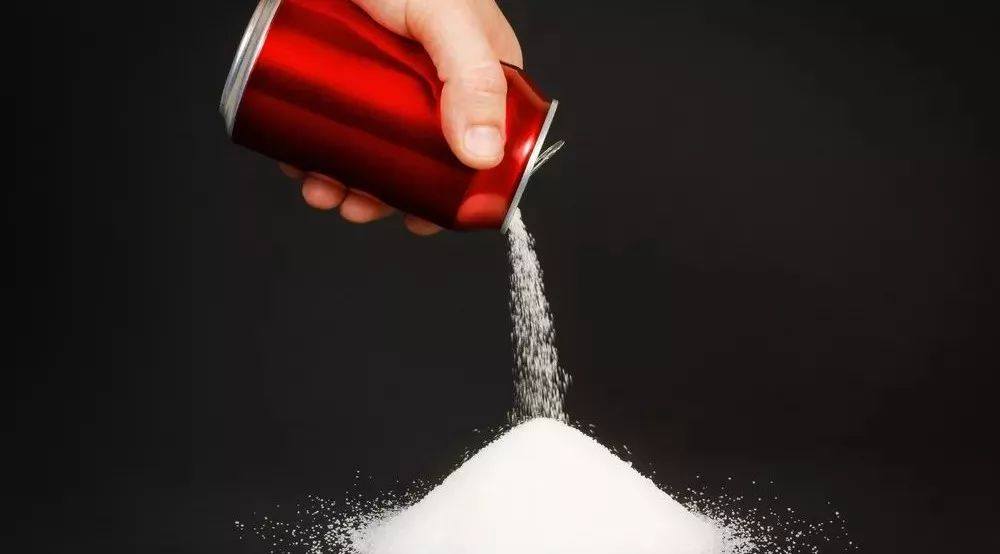
Sweet is almost the common dietary preference of human beings.
There are sweet added sugars everywhere in our life: cakes, soda, chocolate, biscuits, candied dates, braised meat…
Sugar can not only enrich the flavor of food, but also bring happiness to people.
But what many people do not know is that these added sugars not only bring us happiness, but also endanger our health.
Sugar makes people fat.
Sugar is one of the energy substances and an important factor in making people fat.
Some studies show that people who drink more than one cup (about 330 mL) of sugary drinks a day have a 31% higher risk of obesity than people who do not drink.
A small sweet drink, which contains more than 8% sugar.
These extra sugars will be converted into fat in the body, which may make the weight gain several kilograms unconsciously.
In addition to sweet drinks, cakes, biscuits, chocolate… all kinds of sugary foods have contributed to our thicker and thicker waistlines.
Compared with people of normal weight, overweight and obese people are more likely to suffer from heart disease and diabetes, and the risk of cancer is also greatly increased.

Sugar, Cardiovascular Damage
Cardiovascular diseases are the number one culprit in Chinese deaths.
According to statistics, 3 million people die of cardiovascular diseases every year in China, with an average of one person killed by cardiovascular diseases every 10 seconds.
Sugar is one of the accomplices of cardiovascular diseases.
High sugar diet will lead to [three highs], namely hyperlipidemia, high uric acid and hypertension, thus damaging cardiovascular health.
Compared with people who do not drink frequently, people who drink more than one sugary drink a day have an 18% increased risk of hypertension and a 32% increased risk of hyperlipidemia.
These chronic diseases will cause cardiovascular damage and increase the risk of cardiovascular diseases such as myocardial infarction and coronary heart disease.
The more sugar you eat, the higher the risk.
Sugar, Damage to Liver
Liver is an important detoxification organ of human body.
Everyone knows that drinking hurts the liver, but few people know that sugar, such as fructose, also hurts the liver.
Studies have shown that a large intake of added fructose, like a large amount of drinking, will cause fatty liver, liver cirrhosis and other diseases.
Will fructose be added to what’s food? It is widely found in many foods, such as various sweet drinks, candies, biscuits, ice cream, candied fruits…
Pick up a packaged food and the ingredient list may say [high fructose syrup]:

Sugar, make you [addicted]
Sugar has many hazards, but many people still think about it. This may be an addiction to sugar.
Sugar excites the happiness center and reward center of the brain, producing a feeling of pleasure and joy, and fat people are more likely to be addicted to sugar than thin people.
In addition to feeling happy, sugar can also stimulate the brain to secrete [greedy hormone], at the same time reduce satiety, let a person fall into the [sweet trap] of [more sweet-more fat-more want to eat sugar].
Sugar, everywhere
Some people may say, I didn’t eat sweet, nothing.
Really?
Added sugar is widely found in food. You may have exceeded the standard long ago, but you just don’t know it:
Eight sandwich biscuits have 28 grams of sugar; 100mL lactic acid bacteria beverage has 15 grams of sugar; A sweet and sour spareribs has 36 grams of sugar. A bottle of Coke with 64 grams of sugar; … …
Why is sugar everywhere?
On the one hand, it is human nature to love sugar, and food manufacturers will certainly use this to adjust tastes and develop new products. On the other hand, sugar can greatly prolong the shelf life, improve the taste and mouthfeel of food, and meet the needs of the food industry.
Data show that the top three ingredients list contain packaged foods with added sugar, accounting for more than 70% of prepackaged foods supermarkets in China.
We eat more sugar every day than we think.

From today on, eat less sugar
In fact, as early as 50 years ago, some scientists pointed out that too much sugar may be as harmful to cardiovascular health as too much fat. However, at that time, the U.S. Sugar industry invested heavily in guiding academia to place too much emphasis on the cardiovascular damage of saturated fatty acids and kept silent on the harm of adding sugar (free sugar).
In recent years, various studies have found that added sugar in diet is related to the occurrence of obesity, hypertension, dyslipidemia, cardiovascular diseases and other diseases.
More and more countries, health organizations and schools are aware of the harm of sugar to health and begin to take actions.
Dietary guidelines in various countries have also begun to emphasize the importance of limiting sugar intake.
The 2016 edition of the Dietary Guidelines for Chinese Residents suggests that each person should take no more than 50 g of added sugar per day, preferably less than 25 g. Have you done it?
For the sake of health, start with less sugar.
